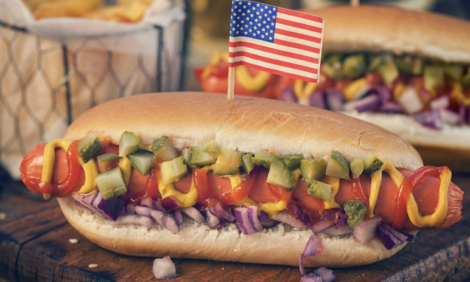



Canada Wins Decisively on COOL Again
CANADA - The Canadian Pork Council (CPC) has welcomed the decision of the World Trade Organisation Appellate Body to confirm and strengthen the most important part of the WTO Dispute Panel decision that the US country of origin labelling (COOL) legislation discriminates against Canadian livestock in the US market.CPC President Jean Guy Vincent told a media conference in Dundurn, Saskatchewan: "The Appellate Body has found that ‘the regulatory distinctions imposed by the COOL measure amount to arbitrary and unjustifiable discrimination against imported livestock, such that they cannot be said to be applied in an even –handed manner’. After all this time and after so much damage to our interests, this is such sweet music to our ears."
On the second main issue whether or not the US measure was more restrictive than necessary the Appellate Body found that it did not have enough information to reach a conclusion. Mr Vincent explained that “This report is very long some 232 pages. We have not had time to fully digest it. CPC had never disputed the consumer’s right to know as a principle, and the legitimacy of this objective has been confirmed.
While the Appellate Body did not have enough information, it does not dilute the main findings. This decision will require the US to change its legislation in order to comply. The condemnation of discrimination against Canadian feeder pigs and slaughter hogs, as well as beef cattle is confirmed.
While the Appellate Body was not prepared to find that US consumer information objectives had not been met. CPC has never contested the consumer’s right to know, provided that this does not restrict trade.
Since its implementation in 2008, COOL has had a direct impact of at least $1.4 billion on Canadian hog exports to the US This does not include any price suppression effects on hogs sold in Canada.
This report is not subject to further appeals. Together with the Canadian Cattlemen’s Association, CPC has been engaged in years of expensive time consuming challenges and litigation to prevent and end the serious discrimination posed by COOL. Mr Vincent was thankful for the help of the Government of Canada in this challenge. "This highly favourable result could not have been achieved without the strong and unwavering support of International Trade Minister Ed Fast and Agriculture Minister Gerry Ritz and their officials. The dedication and excellence of Canada’s legal team and trade experts ensured that WTO dispute settlement worked as it should."
Mr Vincent concluded: "CPC will be working with our American counterparts and other US stakeholders to help find a timely and effective legislated end to this irritant and its serious discrimination. The Appellate Body’s decision signals the need for change and should expedite favourable negotiations and a return to normalcy."






